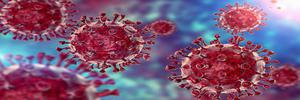Loading...
Found 199 Neoplasms trials
A listing of Neoplasms medical research trials actively recruiting patient volunteers. Search for closest city to find more detailed information on a research study in your area.
The purpose of this study is to see if Daratumumab is useful for treating pediatric (subjects aged >=1 to 18 years) and young adult patients (aged 18 to 30 years) with acute lymphoblastic leukemia or lymphoblastic lymphoma.
The purpose of this Managed Access Program (MAP) Treatment Plan is to provide access to CTL019, for acute lymphoblastic leukemia (ALL) or diffuse large b-cell lymphoma (DLBCL) patients with out of specification leukapheresis product and/or manufactured tisagenlecleucel out of specification for commercial release where no overwhelming safety concerns has been …
The purpose of this study is to find the maximum safe dose of nivolumab alone, and of nivolumab combined with azacitidine after reduced-intensity allogeneic peripheral blood stem cell (PBSC) transplantation. Another purpose is to see how the study drugs affect different aspects of transplant such as infection and disease response.
The purpose of this study is to collect blood specimens and data from patients undergoing stem cell transplant.
This randomized phase III clinical trial compares how well combination chemotherapy works when given with or without bortezomib in treating patients with newly diagnosed T-cell acute lymphoblastic leukemia or stage II-IV T-cell lymphoblastic lymphoma.
The study's primary objective [in a population of patients with MDS after failure of treatment with azacitidine (AZA) or decitabine (DAC)], is to compare the overall survival (OS) of patients in the rigosertib group vs the Physician's Choice group, in all patients and in a subgroup of patients with IPSS-R …
The major purposes of this research study is to obtain blood and tissue samples from patients diagnosed with kidney cancer and/or tissue samples from patients undergoing surgery for their kidney cancer and to obtain clinical information.
The overall purpose of this research is to treat diseases that are not cancer but are improved by bone marrow transplantation.

Normal 0 false false false EN-US X-NONE X-NONE Normal 0 false false false EN-US X-NONE X-NONE Normal 0 false false false EN-US X-NONE X-NONE The PROMISE study is the first study to test healthy people who may be at risk for early warnings signs of a blood cancer called multiple …